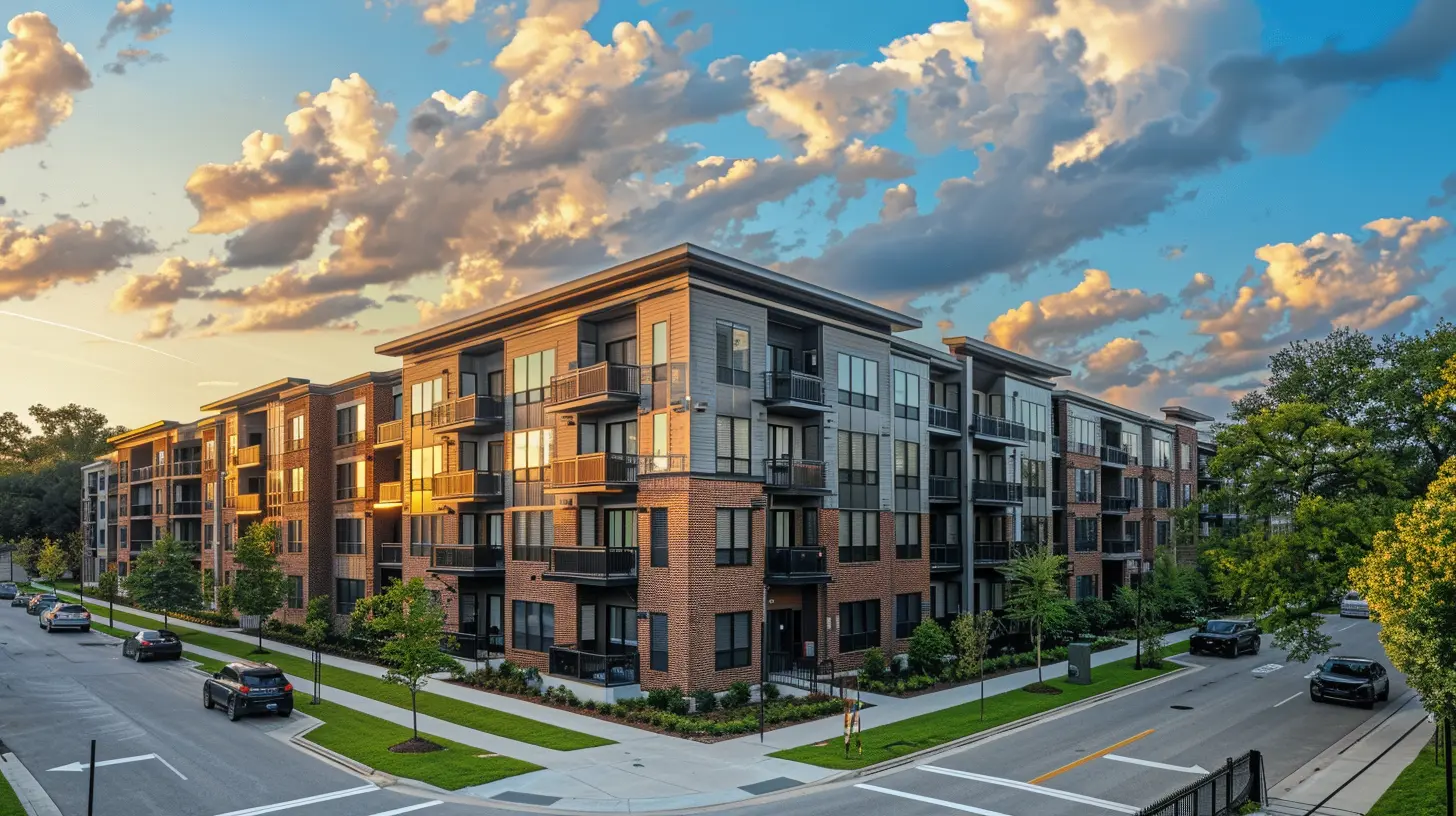Why Tenant Retention Should Be a Focus for Multifamily Landlords
27 September 2025
As a multifamily landlord, you’re always looking for ways to maximize your investment while keeping your property running smoothly. But let’s be real—one of the biggest challenges you face is keeping good tenants around.
Many landlords focus on filling vacancies, thinking the key to success is constantly bringing in new renters. But here’s the truth: Keeping your current tenants happy and renewing their leases is just as—if not more—important than finding new ones. Tenant retention isn't just a nice-to-have; it's a strategic move that saves you money, reduces stress, and keeps your property thriving.
So, why should you make tenant retention a top priority? Let’s break it down. 
The Hidden Costs of Tenant Turnover
When a tenant leaves, it’s not just a minor inconvenience—it’s expensive. Tenant turnover comes with numerous hidden (and not-so-hidden) costs that can eat into your profits.1. Vacancy Costs Add Up Quickly
Every day your unit sits empty is money out of your pocket. You’re still responsible for mortgage payments, utilities, and maintenance whether someone’s living there or not. And depending on how long it takes to find a new tenant, the losses can pile up fast.2. Marketing and Advertising Expenses
Finding new tenants isn’t free. You have to market the unit through online listings, print ads, and sometimes even paid promotions. Plus, the time spent showing the unit to prospective tenants is time you could be using elsewhere.3. The Cost of Tenant Screening
Screening applicants takes effort and money. You need to check references, run background checks, verify employment, and ensure they’re a good fit. And after all that, there’s always the risk of choosing a tenant who turns out to be unreliable.4. Turnover Maintenance Costs
Whenever a tenant moves out, chances are you’ll need to do some work before the next one moves in. Whether it’s a fresh coat of paint, deep cleaning, or minor repairs, these costs can add up—especially if turnover happens frequently.5. Potential Loss of a Great Tenant
Not all tenants are created equal. Some are responsible, pay rent on time, and take good care of your property. Losing them means rolling the dice on whether their replacement will be just as reliable—or not.
Why Retaining Tenants Is a Smart Investment
Now that we’ve covered the downsides of turnover, let’s talk about the benefits of keeping tenants long-term.1. Consistent Rental Income
A long-term tenant means steady cash flow without the disruption of vacancies. You don’t have to stress about when the next rent check is coming in or worry about gaps in occupancy.2. Lower Maintenance and Repair Costs
Long-term tenants tend to take better care of a unit than short-term renters. When people feel at home, they’re more likely to treat the property with respect, meaning fewer repairs and upkeep costs for you.3. Strengthening Community and Reputation
A stable building with long-term tenants fosters a sense of community. When tenants feel connected to their neighbors and the property, they’re more likely to stay. Plus, happy tenants leave positive reviews, attracting better renters in the future.4. Less Stress and Hassle
Anyone who’s managed a rental property knows how exhausting frequent turnover can be. Keeping good tenants means fewer headaches and smoother operations overall.
How to Improve Tenant Retention
So, how do you keep your tenants happy and encourage them to stay? It all comes down to building strong relationships and providing a great living experience.1. Prioritize Communication
Nobody likes feeling ignored. Tenants appreciate landlords who are responsive, approachable, and open to feedback. Make it easy for them to reach you and always address concerns promptly.2. Offer Competitive Rent Prices
Raising rent is sometimes necessary, but drastic hikes can send tenants packing. Do your research to ensure your rates remain reasonable while still covering expenses. Offering small incentives—like a discount for early lease renewal—can also help.3. Maintain the Property Well
A well-maintained property shows tenants that you care. Address maintenance requests quickly, keep common areas clean, and ensure everything is in working order. Happy tenants are more likely to stick around when they see landlords taking their concerns seriously.4. Create a Sense of Community
People stay where they feel welcome. Organizing small events, like holiday gatherings or BBQs, fosters a sense of belonging. When your property feels like home, tenants are less likely to leave.5. Show Appreciation
A small gesture can go a long way. A simple "thank you" note, a birthday card, or even a small discount for loyal tenants can make renters feel valued. When people feel appreciated, they’re more likely to stay.6. Offer Lease Renewal Incentives
Encouraging tenants to renew their lease can be as simple as offering small perks. Whether it’s a minor rent discount, free carpet cleaning, or upgraded appliances, little incentives give tenants a reason to stay.
When a Tenant Wants to Leave, Should You Negotiate?
Sometimes, no matter what you do, a tenant decides it’s time to move. While you can’t force anyone to stay, you can try to persuade them by addressing their concerns.- If rent increases are pushing a tenant to leave, consider negotiating a fair middle ground.
- If maintenance issues are an issue, prioritize urgent fixes and reassure them of future improvements.
- If they need more space, see if another available unit on the property better suits their needs.
Sometimes, simply having an open discussion can make all the difference in preventing a move-out.
The Bottom Line
Tenant retention isn’t just about saving money—it’s about building a thriving, hassle-free rental business. By focusing on keeping good tenants happy, you reduce turnover costs, ensure steady rental income, and create a community where renters want to stay long-term.Sure, attracting new tenants is important, but keeping your best ones? That’s the real key to success.
So, are you ready to prioritize tenant retention and make your rental property a place people love to call home? Small efforts today can lead to big rewards in the future.
all images in this post were generated using AI tools
Category:
Multifamily PropertiesAuthor:

Vincent Clayton
Discussion
rate this article
1 comments
Hannah Gibson
Great article! Prioritizing tenant retention not only fosters a positive community but also boosts profitability. Happy tenants lead to long-term success for landlords.
October 7, 2025 at 4:52 AM

Vincent Clayton
Thank you! I'm glad you found the article insightful. Prioritizing tenant retention truly benefits both landlords and the community. Happy tenants make all the difference!


